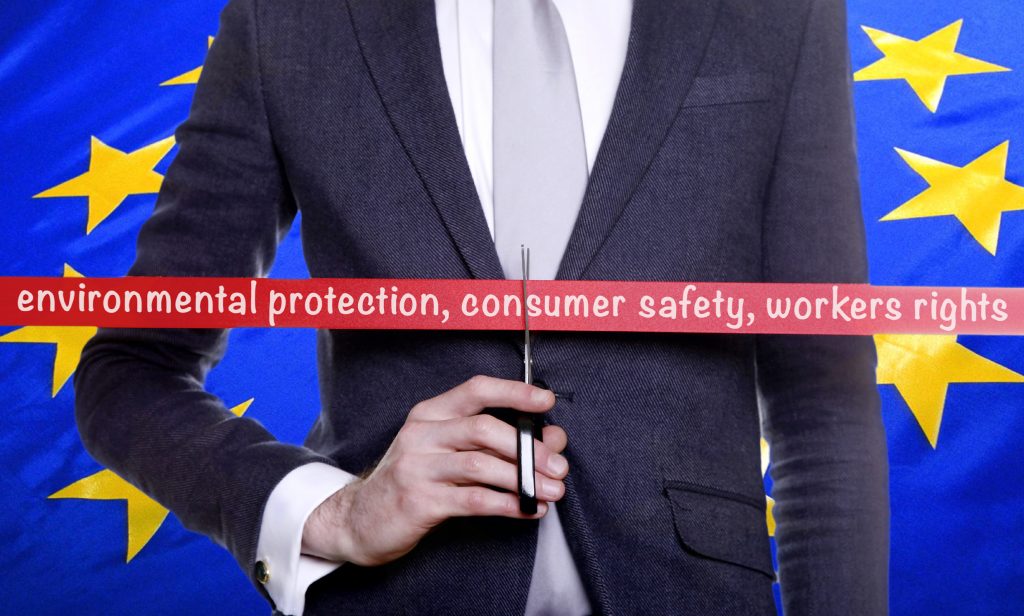Tomorrow sees the new team of European Commissioners officially take office, with no sign of an end to the crusade for big business-friendly deregulation waged under the previous administration.
The new Commission President, Jean-Claude Juncker, looks set to oversee another five years of weakening of legislation and scrapping of rules, especially environmental and social protections, Friends of the Earth Europe and Corporate Europe Observatory are warning.
A new briefing released today explains how initiatives are misleadingly branded as “tackling red tape” or “safeguarding competitiveness” when in reality they are about reducing standards that protect people and the environment, all for the benefit of big business’ bottom line. It shows how big business has consistently pushed the cutting red tape agenda through various channels.
Paul de Clerck, economic justice campaigner at Friends of the Earth Europe, said: “Over the last five years the deregulation agenda has become inescapable in every area of EU policy making. We are witnessing a crusade to weaken or stop any potential regulation that raises costs for business and all the indications are that this will intensify even more under President Juncker. The so-called ‘red tape’ that is being slashed is in fact vital safeguards for the protection of people and our environment.”
The briefing ‘The crusade against ‘red tape’: How the European Commission and big business push for deregulation’ casts light on the many deregulatory initiatives that have taken place over the last decade under the outgoing Commission President, José Manuel Barroso.
For example, in 2007 the Commission set a target to reduce administrative burdens to business by 25% by 2012. In 2012 it launched its ‘REFIT’ programme to ‘eliminate unnecessary regulatory burdens and ensure EU laws are fit for purpose’. And in May 2014 53 legislative proposals were dropped, including proposals about access to environmental justice, protection of soil, and procedures for the authorisation and supervision of medicines.
The structure of the new Commission sees significant changes – all indicative of an increased attack on regulation. A new Vice President position with responsibility for ‘better regulation’ has been created by President Juncker who has named his number one priority as ‘A New Boost For Jobs, Growth And Investment’. This is likely to put considerable emphasis on getting rid of burdensome regulation.
The structure, mission letters, and the choice of candidates for the 28 Commissioners have been strongly criticised by Friends of the Earth Europe andh the other member of the Green 10 coalition for representing a serious downgrading of environment and a roll-back of EU commitments to sustainable development, resource efficiency, biodiversity protection and climate action.
As it starts its term, there are many reasons to be worried the new Commission will be better news for corporate interests than for citizens and the environment.







